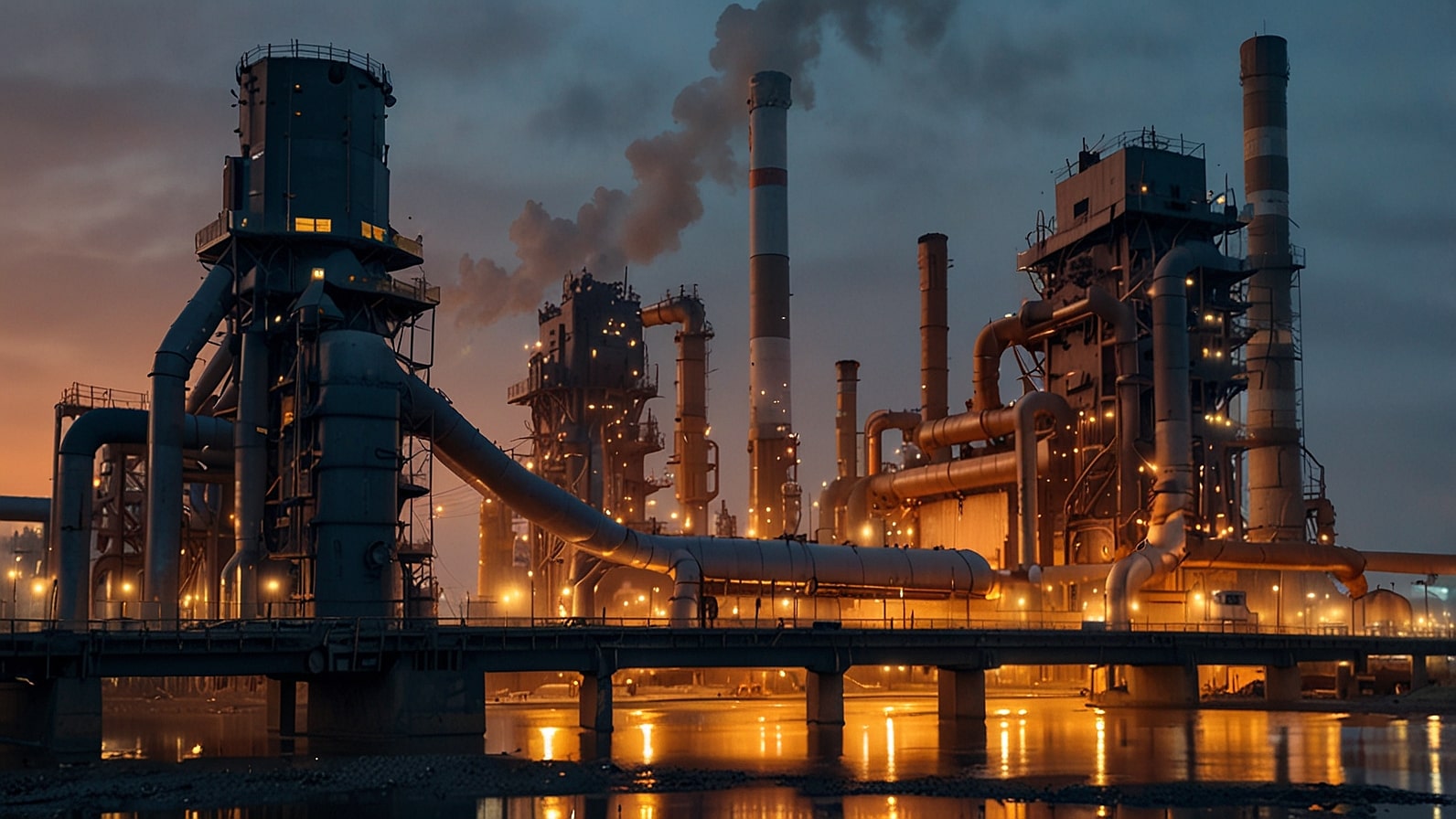ThyssenKrupp AG has an opportunity to finalise a groundbreaking transaction of its ailing steel division, an Indian group of Jindal Steel International is scheduled to land in the factories of Germany this week.
The relocation can be seen as one of the possible salvations of the already struggling unit amidst the growing global steel demands and the national decarbonization requirements.
The Due Diligence by Jindal is an Indication of the Momentum of a Deal
The stakeholder visit would be held in mid-November, and this is immediately after Jindal made a non-binding offer in September. The officials of the Naveen Jindal-controlled conglomerate will examine the finances, operational efficiencies and assets valuation in key ThyssenKrupp Steel facilities such as the mammoth Duisburg plant.
According to sources leading to the discussions, the valuation may open the door to binding offers by the end of this year, which may bring new money into a business world already facing overcapacity and trade wars.
The pressure has been mounted on ThyssenKrupp to divest its steel unit that has been losing money in recent years, courtesy of fluctuating prices of raw materials and declining demand in Europe. The division reported a 450 million euro operating loss in the fiscal year 2024, which was worsened by the inflation of energy prices after the conflict in Ukraine.
The Jindal overture is seen as a strategic shift in the mind of the management, which is consistent with the overall plan to re-focus on the high-margin businesses such as materials, services and marine systems.
Chief Executive Miguel Lopez confirmed the exploratory stage, which he said was progressing in positive directions with several suitors. However, Jindal takes the lead, with its experience of low-cost production in Indian mills, which have the potential of providing a welcome changeover in the European presence of ThyssenKrupp.
The interest of the Indian firm highlights an increasing trend of emerging market players to take away troubled Western assets during the green steel transition.
Plagiarism of Global Steel Glut and EU Green Deal Adds Urgency
It could not have been at a worse time for ThyssenKrupp Steel. The global supply, which is enhanced by exports out of China, has pushed the prices down to the lowest levels of the decade, with the hot-rolled coil prices falling below 600 euros per tonne. The anti-dumping EEU on Asian imports is some protection, though not structural.
In the meantime, the Carbon Border Adjustment Mechanism of the bloc, which will be realised in 2026, will increase the expenses of high-emissions producers, such as ThyssenKrupp, up to 200 million euros per year without upgrades.
The looming decarbonization: ThyssenKrupp has committed to a hydrogen-direct reduction facility in Duisburg by 2027, but lacks the funding. The participation of Jindal can fill this gap, where hybrid models involving the use of blast furnaces, integrated with electric arc technology, look to reduce emissions.
The enterprise value of the steel unit is estimated at 2-3 billion euros, a small portion of the amount in the 2010s due to investor uncertainty about the industrial recovery in Europe.
Other rivals, such as ArcelorMittal and Salzgitter, are circling the same deals, but ThyssenKrupp is so large with a production of 11 million tonnes/year that it is a prize catch. Job losses, however, raise red flags in unions; IG Metall threatens to lose 27000 jobs in the Ruhr area because automation may go at a faster pace with foreign ownership.
Broader Implications for Germany’s Industrial Heartland
This epic echoes through the export sector of Germany, which is largely made up of steel makers of automotive and machinery powerhouses such as Volkswagen and Siemens. A Jindal tie-up has the potential to stabilise the supply chains, but could lead to the loss of national control over important materials.
The coalition government of Berlin, after budgetary wrangles, is keeping a close eye on Economy Minister Robert Habeck, stating that it should come up with strategic partnerships that protect green objectives.
In the case of Jindal, the play is able to diversify its global portfolio beyond that of 20 million tonnes in India, and access the EU markets through existing ThyssenKrupp facilities. However, cultural and regulatory obstacles are plentiful- Antitrust investigations by the European Commission may bog down proceedings, particularly when trade between India and the EU is under increased discussion.
Outlook: Revival or Fire Sale?
In case the due diligence shows green lights, a deal may close by the middle of 2026, which will open 500 million euros in synergies through cost-sharing and tech transfers. ThyssenKrupp would get to shed an albatross, increasing its EBITDA margin to about 10 per cent and investing in renewables and lifts expansions. Jindal, in the meantime, obtains a foothold in high-end markets, insuring itself against home protectionism.
However, sceptics warn that the misfortunes of steel are structural: data by the Ifo Institute indicated that industrial opinion was at a multi-year low, and 41% of companies were looking at layoffs in 2026. Devoid of more aggressive EU subsidies, which can reach 10 billion euros towards hydrogen infrastructure, such acquisitions can simply delay the unavoidable merger.
As ThyssenKrupp balances between these twin paths, the Jindal investigation represents a balancing act of high wire to German manufacturing: as a way of escape from obsolescence 2 or as a way of preservation in the teeth of adversity. The negotiations in the shade of the smokestacks of the Ruhr might be a new chapter in the history of steel around the electric period.
